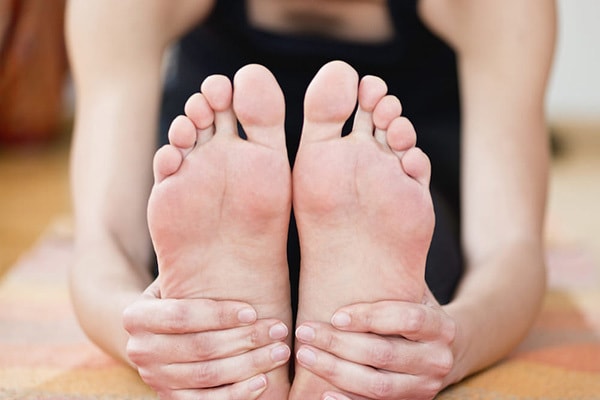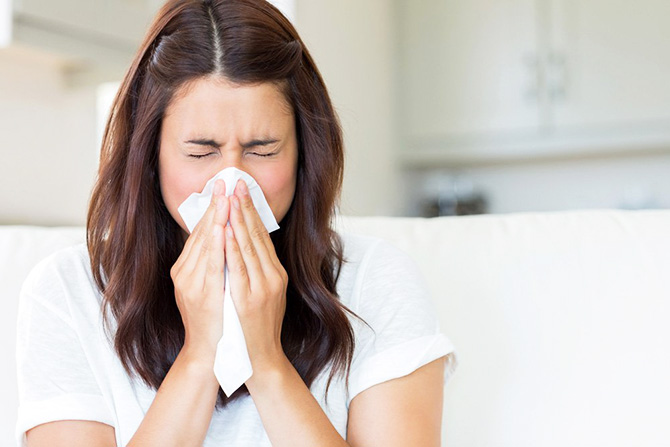Allergic rhinitis is one of the common respiratory disorders in people. It usually involves sneezing and runny nose, which may affect a person’s activities of daily living. The following are the causes, signs and symptoms, and home remedies for allergic rhinitis.
Causes
According to NHS UK, allergic rhinitis is due to an allergic reaction to an allergen. As per the publication, these allergens include dust, pollen, and certain animals like cats, dogs, horses, rabbits, rodents, and cattle. This reaction is due to an oversensitive immune system, in which the person’s natural defense against infection and illness responds to an allergen as if it were toxic to the human body. According to the publication, work-related allergens like flour dust, latex, and wood dust may also serve as allergens.
Signs and Symptoms
Allergic rhinitis presents several symptoms. According to Health Line, they include sneezing, runny nose, stuffy nose, itchy nose, coughing, sore throat or scratchy throat, itchy eyes, water eyes, dark circles under the eyes, frequent headaches, hives, excessive fatigue, and eczema-like symptoms like extremely dry and itchy skin that usually blisters. As per the publication, it is best to seek medical consult with a physician if one or more of the aforementioned symptoms persist for more than few weeks
Home Remedies
While cough and cold preparations are available to treat allergic rhinitis, home remedies can also be used to manage the condition.
Saline Water
One of the remedies for allergic rhinitis is saline water. According to Top 10 Home Remedies, saline water helps eliminate mucus from the nose using saline nasal wash. As per the publication, a 2008 study, published in the State Medical Society Wisconsin official publication, revealed that regular nasal saline irrigation can relieve allergic rhinitis symptoms. To prepare the mixture, a teaspoon of salt is mixed to a pinch of soda in two cups of warm distilled water. Then, a small amount of the solution is put into the nostril using a nasal bulb. Next, the solution is allowed to drain back out through the other nostril or through the mouth. Then, the person blows his nose to remove excess mucus and solution. Finally, the same process is done with the other nostril. The remedy can be done multiple times a day until the symptoms resolve.
As per Mayo Clinic, distilled or sterile water can be used to prevent nasal infection. According to the publication, water can be filtered with a filter with an absolute pore size of one micron or smaller to make up the irrigation solution. The irrigation device is rinsed after each use using sterile or filtered water and is air-dried.
Diet Modification
Another remedy for allergic rhinitis include diet changes. According to Naturopathic, allergy symptoms can be reduced by consuming a moderately low-fat, but high-complex-carbohydrate diet. Also, the person drinks water, which is half amount of his body weight in ounces daily. For instance, a 160-pound person should drink 80 ounces of water everyday. In addition, food sources that should be included to the diet are green leafy vegetables, deep yellow and orange vegetables, bamboo shoots, beet tops, carrots, yams, beets, cabbage, garlic, cayenne, ginger, onions, and horseradish. Then, food choices that are eliminated from the diet include wheat, sugar, red meat, peanuts, food coloring, chocolate, alcohol, dairy products, and caffeine.
Ginger
One accessible rhinitis remedy in the household is ginger. As per Top 10 Home Remedies, ginger acts as a natural antihistamine, which also has immune-boosting, anti-inflammatory, antibacterial, and antiviral properties, which can promote relief of rhinitis symptoms. According to the publication, a tablespoon of grated ginger, cloves, and cinnamon are added to a cup of water. The ingredients are boiled for five minutes, strained, and then mixed with wither lemon juice or honey.
Allergic rhinitis is one of the respiratory problems that affect a person’s daily activities. Thus, it is best to seek medical consult for proper history taking, assessment, planning, intervention, education, and evaluation.








